Tuesday, May 06, 2014
Under the Skin
Ladies and gentlemen, the Agitation of the Mind Award For Filmic What-The-Fuckey, Total Commitment to Anti-Narrative and Ability to Send the Audience Stumbling Out of the Cinema in a State of Wordless Stupefaction goes to … Jonathan Glazer for ‘Under the Skin’.
Adapted so loosely from a novel by Michael Faber that the English language really needs to find a new word to fill the no-man’s-land between “adapted” and “has the same title”, ‘Under the Skin’ is virtually impossible to synopsize - unless you render the half dozen or so key scenes as short impressionistic poems – and even more difficult to pin down critically. In fact I’m not sure why I’m even trying.
SPOILER ALERT. The film begins with an alien literally dressing itself in a human identity and ends with sloughed skin and an impromptu cremation in which the creature’s identity is so thoroughly obliterated that when its ashes descend in a flurry of falling snow there is no way to determine which is which as they rain down and blank out the camera’s lens. This sense of slipperiness, of arbitrariness, of impermanence seeps through every scene. SPOILERS END.
In its most basic iteration, ‘Under the Skin’ can be described as “Scarlett Johannson plays an alien in Glasgow”, the delirious unexpectedness of the three elements of that sentence almost making it sound like a comedy. It’s anything but. ‘Under the Skin’ is hypnotic, disorientating and disturbing in roughly equal measures. Two scenes in particular – one on a beach, one involving a gentleman with Joseph Merrick-like degenerative skin condition – troubled me more than anything I’ve seen on the big screen in a while.
In its lewdest iteration, ‘Under the Skin’ can be expanded upon as “Scarlett Johannson plays an alien in Glasgow luring men to their doom with the promise of sex”. And I suppose the least enigmatic statement the film makes is the tendency of most men to make decisions based on their libido. Get in an unmarked van with a woman who doesn’t act quite right? Follow her into a house in the shittiest urban hellhole imaginable, a house whose windows have steel plates bolted over them? A house that’s unlit, its interior almost pitch black, and its floor of a strange consistency? Aw, hell, why not – so long as she’s a looker!
But beyond the simple we-knew-that-anyway message of “most men think through their dicks” – we meet two types: the self-delusive wannabe lothario and the callous rapist – what is ‘Under the Skin’ finally about?
What it’s certainly not about is the alien’s mission, or for what purpose her victims are culled, or even (beyond perhaps running the most unsubtle mop-up operation in the history of cinema) the other alien with the predilection for high-performance motorbikes has to do with anything. The novel apparently provides a rationale, but film refuses to explain anything. Seldom does cinema function on this level of the abstract without “Bunuel” or “Jodorowsky” kicking about in close proximity to the words “directed by”.
Glazer floats hints of meaning, specifically in the second half where the alien tries to assimilate human behaviours (while, paradoxically, withdrawing into an uncommunicative state as she/it does so), but a definitive reading of the film is surely something that can only ever exist on a personal level and influenced in varying degrees by the individual viewer’s aesthetics, imagination and level of recreational drug use.
I saw ‘Under the Skin’ with a friend who is both cine-literate and eloquent. It says something that, exiting the cinema, we were both lost for a coherent sentence. It took a long conversation in the pub afterwards for me to even sift my thoughts into this review – which is probably less a review than a ramble. A chap we spoke to in the pub said that he felt the film was pointless, but it was clear there were scenes and images that had – pardon the obvious turn of phrase – got under his skin. Same for me. I can’t pretend to understand, explain or cogently analyse it, but I have no doubt that ‘Under the Skin’ is art, in the gnarly Brueghel/Plath/Penderecki sense of art as a force that upsets, disturbs and deconstructs. And, from the shaken husk of the audience that has the confidence to engage with it, regenerates.
Subscribe to:
Post Comments (Atom)
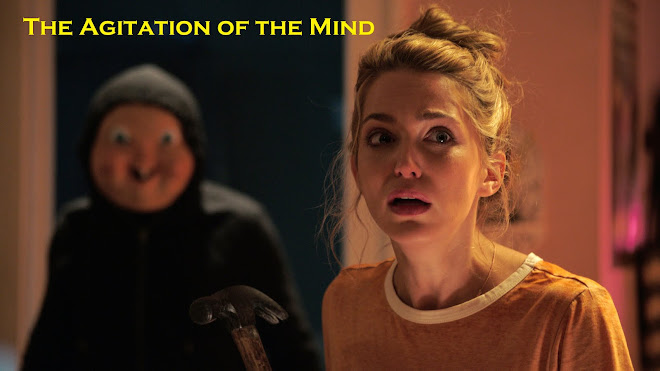


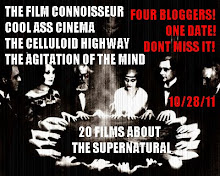
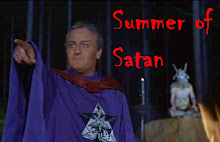












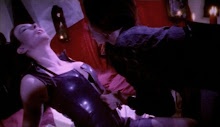





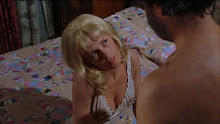









3 comments:
This is an extraordinary film - bleak, beautiful, scary, mundane and plain...wierd!
I think Glazer has got away with making such a consciously arty film in the same way that Paul Thomas Anderson did in There Will Be Blood in that all the strange and fantastic sights we see are held for us just long enough before something comes along to advance the story. At no time did I feel anything was being done just for effect or shock value. Johannson's performance is key to this and I felt the film became even better once it became essentially wordless after the scene with the disfigured man.
I can't wait to see it again as I was so gripped by it in the cinema that I need to re-watch it to see what I've missed. And you haven't even mentioned that extraordinary score by Mica Levi.
Best film of the year for me so far along with Calvary.
D'oh! I wrote a whole review and didn't say a word about the score. You're right: the music is extraordinary, and I was amazed to discover that Levi is only in her early 20s.
I'm still dazed at how good, how ethereal Johannson is: the dialogue that's always a beat off; the way she holds herself; she way she moves ... even in such minute detail as the way her foot lifts then sets back down again as she backs across the glossy black floor of the house to which she lures her pick-ups.
That foot thing you just described is, literally, my favorite piece of acting in any movie I've seen this year. I don't know what to say about Johansson's performance in this movie, but it's pretty spectacularly unique, and I really do not think that anybody else working right now could have done the same thing. Maybe Catherine Deneuve 40 years ago, but that's about all I've got.
Post a Comment